Everyone knows that a healthy lifestyle significantly increases the body’s ability to fight diseases, makes your health strong and your body beautiful. Proper nutrition is an important component of this image, since it is food that saturates the body with energy and all the micro and macroelements that the body needs to maintain all its processes in the right mode. Many people mistakenly believe that healthy food is necessarily tasteless, which makes maintaining a healthy diet extremely difficult and painful, but in reality this is not the case. Let's consider a healthy diet for every day.
The best option for a proper diet is traditional meals.
Before you start creating your healthy nutrition menu, you need to understand a few important details. The first step is to accustom your body to the optimal volumes of food consumed.
It is advisable for any healthy person to eat at least 4-5 times a day, pausing for 3 hours between meals. The best option is traditional meals: breakfast, lunch and dinner, between which two snacks are included.
It is important to follow the established regime and sit down at the table at the same time every day - this will develop the stomach’s habit of preparing in advance for the arrival of food, which will increase the efficiency of the digestive system and, as a result, have a positive effect on the condition of the entire body. It is undesirable to skip meals, but if this does happen, you should not make up for what you missed during the next meal, overloading your stomach with excess food.
Omissions especially apply to dinner. If the evening meal was missed for some reason, you should not eat before bed - it is better to go to bed hungry and have a hearty breakfast in the morning. It is this kind of breakfast that is welcome from the point of view of a proper diet - it starts the metabolism, telling the body that it is time to wake up.
As for the time of each meal, it is recommended to have breakfast 30-90 minutes after getting up. At noon you need to have a snack, and it is advisable to find time for lunch between the first and third hours after noon. A few hours after lunch, you can have another snack, but if we talk about dinner, then the only recommendation for this meal is the following: you need to eat no later than two hours before you are supposed to go to bed.
A proper diet is based on regular meals every day, and it is important to take care of yourself and not overeat.
The benefits of proper nutrition
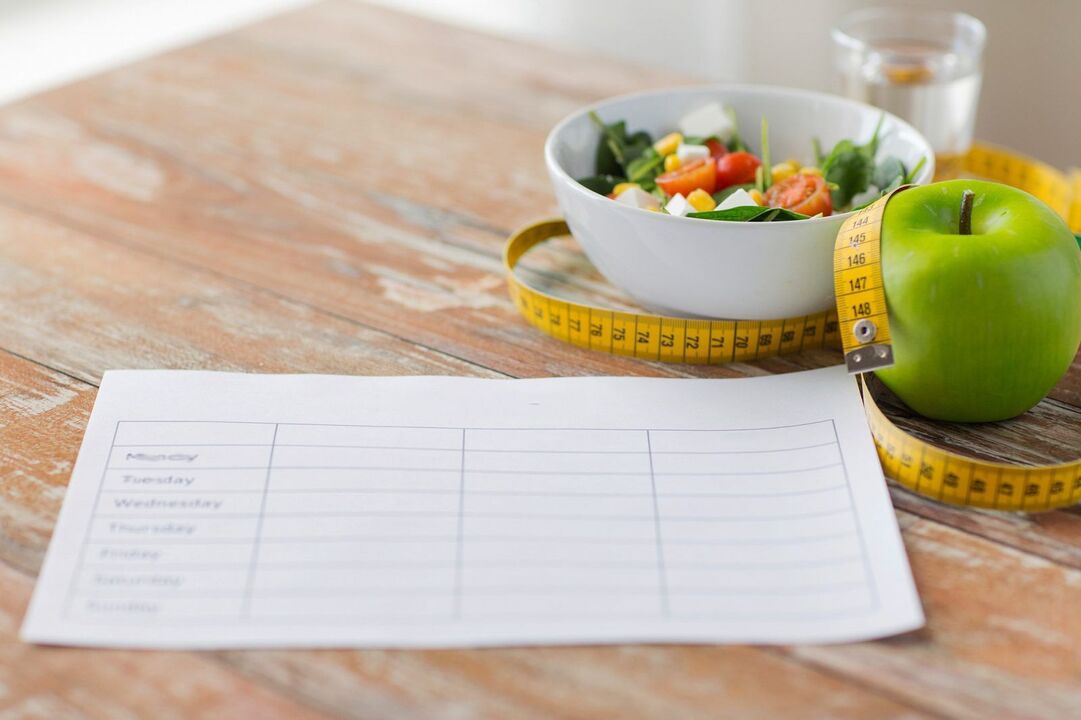
The advantage of proper nutrition is the absence of hunger.
By eating right every day you can achieve significant benefits for yourself. For example, lack of hunger - by accustoming the body to regular meals, you can get rid of the following unpleasant phenomena:
- stomach pain, headaches, fatigue. All these sensations are a companion to poor nutrition and occur when the stomach does not receive the necessary food for a long time.
- the ability to create a menu yourself - having mastered the principles of healthy eating, each person can easily determine what exactly he needs to eat during the day in order to feel good. Thus, even at a party or in catering establishments, you can always find a dish that will fit within the established regime.
- a constant feeling of lightness and freedom - knowing the basics of proper food intake, you can avoid overeating and the discomfort associated with them.
- no strict restrictions - proper nutrition includes certain recommendations about what you should eat and what it is better to abstain from, but these recommendations are not categorical rules and they can always be adapted to a regime that will suit everyone individually.
Of course, the transition to proper nutrition cannot be accomplished in one day. Before the body gets used to regular meals, you will have to make some volitional efforts and attentiveness. It will be especially difficult for people who previously ate as they had to, without observing any discipline in eating food. Proper nutrition has a number of advantages, but it is not so easy to get used to.
Principles of proper nutrition
A varied menu of healthy foods is the basic principle of proper nutrition.
Healthy eating is not only a properly composed diet of healthy foods. This is also a certain culture of eating food, which is not so easy to master. To accustom yourself to this culture, you need to have an idea of all its nuances:
- thorough chewing: food that enters the mouth, before being sent to other parts of the digestive system, must undergo good mechanical processing by the teeth, and also be thoroughly moistened with saliva
- do not be distracted: you need to eat food slowly, trying to be distracted as little as possible by events in the outside world - this will prevent you from overeating due to inattention
- optimal amount of food: you should get up from the table with a slight feeling of hunger, since the brain sends signals of satiety with some delay
- exclude water during meals: too much liquid in the stomach leads to the fact that the concentration of gastric juice will be disturbed and, as a result, the digestive process will worsen
- variety: the planned menu should not only be balanced, but at the same time include as many different dishes as possible
- moderation: in nutrition, as in everything else, one should be moderate - overeating does not lead to anything good, food should be eaten in such quantities that are optimal for the body
Healthy eating consists of several "basics" that everyone should know.
Correct menu options
The basic principle of proper nutrition is switching to stewed, boiled and baked foods.
Healthy food is considered to be one that will provide the body with all the necessary components, supplying them in the correct ratio. The portions of the food consumed should be such that after the meal you feel full, but not overeating.
The basic principles of a proper menu are to refuse or minimize fried, smoked or pickled foods and switch to stewed, boiled and baked foods. Dishes in this form retain the greatest amount of useful components.
When creating a menu, you need to remember that proteins, fats and carbohydrates must enter the body in a certain ratio. The optimal amount is 50% carbohydrates, 35% proteins and 15% fats. Porridge, fruits and vegetables boast the highest carbohydrate content. Proteins are mainly found in meat, fish, eggs, cheese and cottage cheese. When including meat in your diet, preference should be given to lean types. A healthy weekly diet should include:
- chicken or turkey meat, as well as other lean types of meat. Such meat takes a long time to be processed by the body, but it saturates it well and fish does not contain excess fat. This product contains a large amount of fatty acids, which are extremely important for normal metabolism. By eating fish regularly, you can significantly improve your mental abilities. It also stimulates the functioning of the heart and pancreas, and has a positive effect on the health of skin, nails and hair.
- cottage cheese. This protein-rich product is exceptionally low in calories. It replenishes calcium reserves in the body and helps maintain muscle tone.
- vegetables and greens. These products should definitely be included in a healthy diet, as they improve the digestion process, stimulate metabolism and normalize the acid-base balance. As an example of proper nutrition for every day, consider the following menu:
- breakfast - a hearty meal that consists of porridge cooked in water, cottage cheese or eggs and fruit, as a dessert
- lunch - a portion of low-fat soup and a vegetable side dish with meat
- dinner - it is recommended to include plant foods in this meal. An excellent solution would be: salad, porridge, baked vegetables, two snacks - fruits, nuts, yogurt are perfect for this
Naturally, such a diet is not something categorical. Everyone can easily create a menu based on their own capabilities and preferences, without forgetting the basic principles of proper nutrition. A healthy diet should consist of eating a variety of healthy foods every day.
Products to Avoid

When creating your own healthy nutrition menu, you must remember that all foods consumed must be healthy. For example, you should not replace the correct lunch option with a chocolate bar, which is similar in calorie content.
There are also certain recommendations regarding certain foods that it is advisable not to consume at all. The following should be excluded from the diet:
- chips, crackers, fast food
- chocolate and various confectionery products
- sauces sold ready-made
- unnatural juices, nectars
- baked goods and white bread
- breakfast powders
- sweet soda
- alcohol in immoderate quantities
The prohibition on the consumption of these products is a recommendation, not a strict rule. Of course, it is best to minimize the consumption of such foods. For example, those with a sweet tooth who simply cannot live without their favorite baked goods can first replace them with homemade baked goods, which will contain less sugar and oil. The same applies to fast food. It is extremely important to try to find healthy alternatives for your bad eating habits.
If the correct diet seems difficult and causes periodic breakdowns, it is extremely important not to abandon what you started. You need to set a specific goal for yourself and relentlessly follow it no matter what. If breakdowns do occur, then you need to continue to try to adhere to the established regime, without paying attention to them. Sooner or later, the breakdowns will stop, and the body will get used to the correct diet.
While following a proper diet, it is recommended to give up certain foods, the consumption of which does not provide the body with any benefit. A healthy diet is not only a menu composed in a certain way, but an entire way of life in which a person is well versed in what and in what quantities he needs to eat in order to be healthy. There are certain recommendations that explain the intricacies of the correct regime. By observing all these nuances, you can easily accustom yourself to regular healthy meals.
Table of proper nutrition for every day, principles and features of its organization
In recent years, the relevance of a healthy lifestyle has increased. Considering all its advantages, people normalize their daily routine, adjust their diet and give up bad habits. "Zogniks" pay special attention to their diet, carefully monitoring the balance of consumed microelements and the number of calories.
Today our resource will help those readers who decide to eat healthy and without harm to their health choose the optimal diet for every day of the week.
Are you interested in this issue? Then be sure to read the article below to the end. We assure you that all the material presented will be useful to every person.
The benefits of proper nutrition and its basic principles
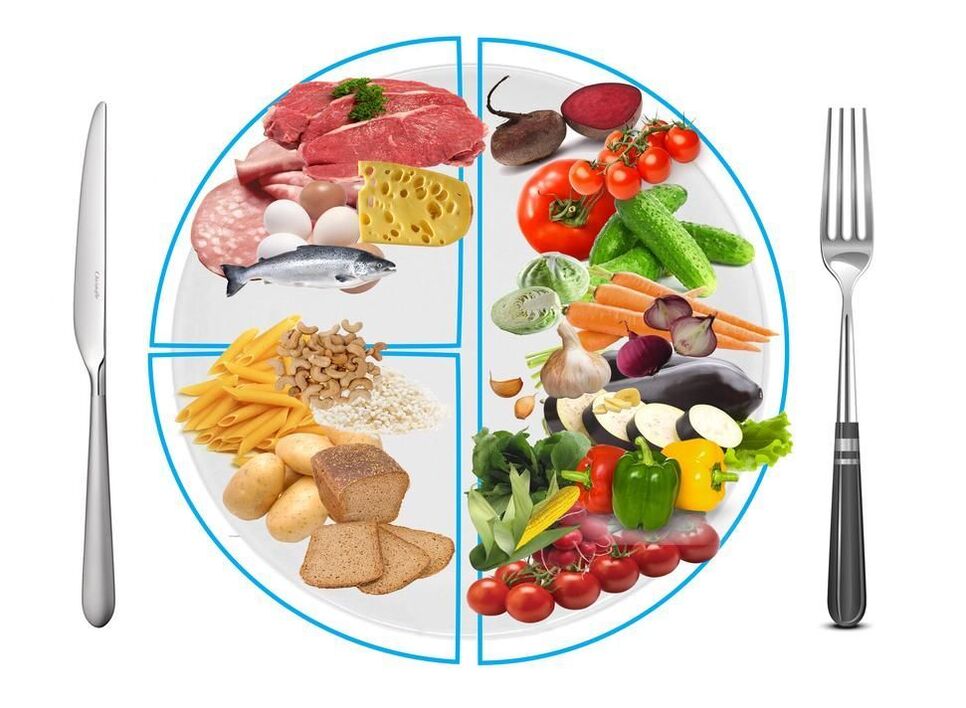
Proper nutrition is the key to a long and problem-free life for any person. Everyone knows this aphorism: "We are what we eat. "He does not exaggerate the importance of diet in people’s lives one bit, so if you want to lead a healthy lifestyle, this phrase should be taken as an axiom and never forgotten.
To eat right, you don't need to take any complicated measures. The main thing is to eat food that does not harm the body. Basically, such products are rich in plant components, vitamins and microelements.
Proper nutrition is not something boring and difficult to organize. There is no need to give up harmful goodies when selling it - it’s enough not to abuse them. Examples of tasty but unhealthy food include chips, fast food, smoked meats and similar products.
By approaching your diet selectively and wisely, any person will be able to eat tasty, but at the same time beneficial for their health. The most important point in a proper diet is food, which is not surprising.
However, we must not forget about other principles of healthy, proper nutrition. These fully include:
- Eating only with a feeling of hunger and exclusively in natural poses.
- No overeating – it’s better to get up from the table with a slight feeling of malnutrition.
- Organization of fractional meals in quantities of 4 times a day.
- Proper distribution of calories consumed throughout the day and their adequate selection.
- Water consumption is normal, but it is advisable to drink the liquid not immediately after meals or as a drink for meals.
- The last meal is "light" and is organized 3-4 hours before bedtime.
- The actual process of eating food should be calm. It is important to chew food thoroughly and in small pieces. Swallowing all or a significant portion of a portion is quite stupid and, most importantly, harmful to health. In principle, nothing more is required to implement proper nutrition.
It is enough to observe and adhere to the principles noted above.
List of "correct" products
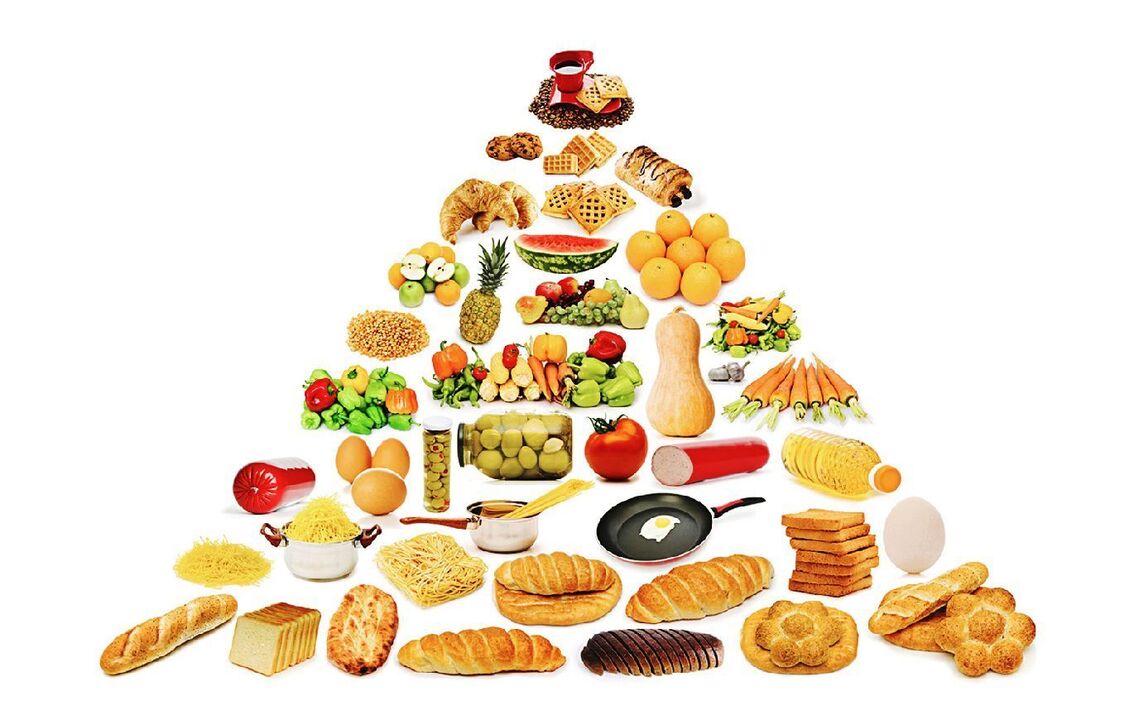
The concept of "the right product" is an extremely ambiguous definition. In general, it should be understood as all types of food that will be beneficial to the body and will not cause harm to it when consumed.
Such products fully include:
- greens rich in fiber;
- vegetables;
- fruits;
- berries;
- meat;
- fish;
- seafood;
- cereals;
- milk products;
- green tea and some types of black;
- compotes and fruit drinks.
All other products cannot be classified as correct and healthy. Taking them may be harmless, but it must be organized in a dosed and adequate manner.
In addition to the type of food itself, the technology of its preparation should be taken into account. The most useful and correct option would be to eat dishes prepared by boiling, steaming or baking.
You can eat fried, smoked and pickled products, but it is important to do this with extreme caution and always without abuse.
What to give up
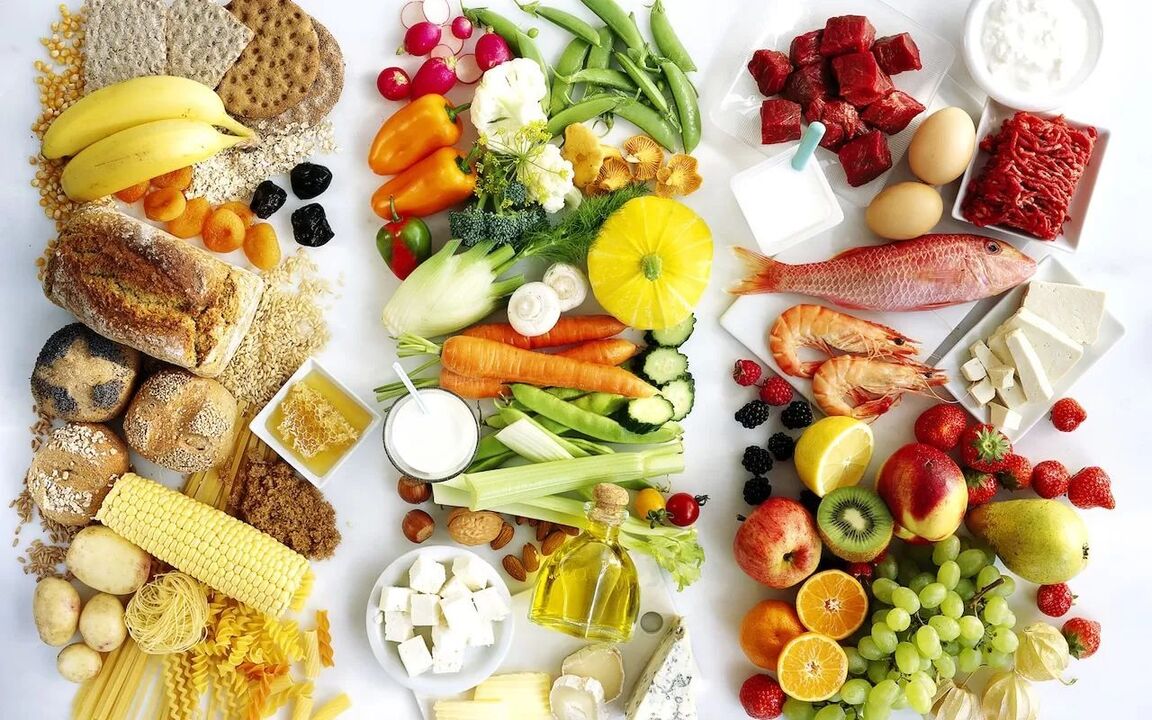
The main rule is quality products!
As mentioned above, significant restrictions are not required if you want to eat healthy. The main thing is not to overuse potentially harmful products. What does it mean? It's simple.
Even the most harmful chips and similar foods can be eaten, but only periodically and in reasonable quantities. In this case, unhealthy dishes will not bring any harm and will allow you to satisfy the gastronomic needs of any person.
It is not necessary to refuse any product, but you should always be careful in terms of its use. With some caution you can eat:
- chips, kirieshki and similar "pickles";
- all fried, smoked, pickled and salted foods;
- coffee and black tea;
- lemonades;
- sweets and sugar directly;
- canned products of any kind;
- fatty dairy products;
- bakery and similar products.
Perhaps it is better to avoid meal replacements, food additives and sauces completely. Even in small quantities, these products provoke problems in the body’s functioning and are in no way compatible with the idea of proper nutrition. Otherwise, a healthy diet does not require restrictions.
Example of an optimal menu
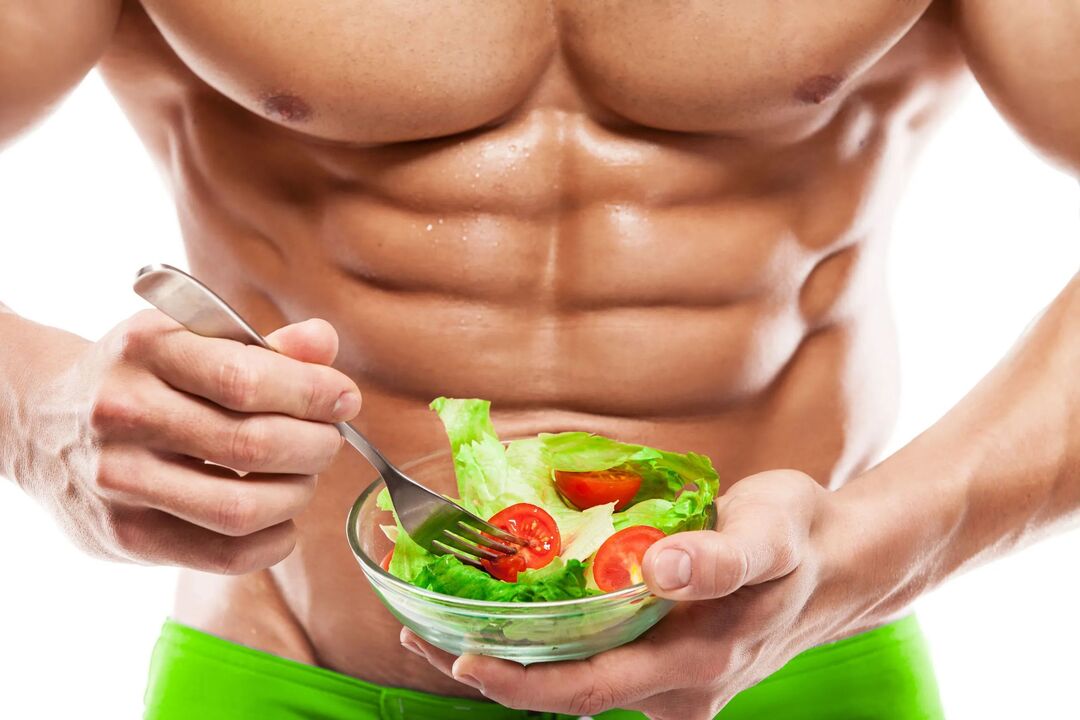
Without proper nutrition, having a slim figure is not easy. . .
The optimal menu is what all healthy dieters strive for while adhering to the principles of healthy eating. Most people do not want to lose weight or gain weight, but simply pursue the goal of maintaining their weight at a constant level.
Choosing a good diet is very simple. As a rule, banal compliance with the provisions noted above is enough, taking into account the total calorie content of the foods taken.
As an example of an optimal menu for middle-aged women and men, let’s present the following meal schedule for 7 days:
Monday
- Breakfast: buckwheat porridge, boiled egg, vegetable salad with sour cream or a little butter, green tea with sugar.
- Second breakfast (lunch): apple or banana, glass of milk or kefir
- Lunch: lean meat, vegetable salad, soup, compote.
- Afternoon snack: tea with cookies or something baked.
- Dinner: fish, vegetable salad, green tea with sugar.
Tuesday
- Breakfast: oatmeal with berries, compote.
- Second breakfast (lunch): beet salad with bread.
- Lunch: buckwheat, chicken, vegetable salad, green tea with sugar.
- Afternoon snack: light sandwich with cheese and butter.
- Dinner: lean meat, fresh vegetables, a couple of boiled potatoes, compote.
Wednesday
- Breakfast: omelet with herbs, green tea with sugar,
- Second breakfast (lunch): any fruit.
- Lunch: puree soup, cutlet, vegetables, compote.
- Afternoon snack: pie with green tea.
- Dinner: lean fish with vegetables, compote.
Thursday
- Breakfast: fried eggs, stewed vegetables, black tea with sugar.
- Second breakfast (lunch): banana.
- Lunch: lean meat, potatoes in any form, compote.
- Afternoon snack: light sandwich with anything and green tea.
- Dinner: lean meat with vegetables, compote.
Friday
- Breakfast: Perlovka porridge, nuts and milk.
- Second breakfast (lunch): any fruit.
- Lunch: turkey fillet, vegetable soup, compote.
- Afternoon snack: baked goods with green tea.
- Dinner: stewed fish, vegetable salad, compote.
Saturday
- Breakfast: oatmeal, coffee.
- Second breakfast (lunch): grapefruit.
- Lunch: pureed vegetable soup, cutlets with buckwheat, green tea with sugar.
- Afternoon snack: cookies with compote.
- Dinner: lean meat, vegetables, compote.
Sunday
- Breakfast: dried fruits, black tea with sugar, any porridge.
- Second breakfast (lunch): banana.
- Lunch: chicken, any side dish, compote.
- Afternoon snack: any bakery product with milk.
- Dinner: chicken, vegetables, green tea.
When eating according to the menu described above, it is important:
- Keep its total calorie content at 2000-2600 calories.
- Get up from the table without eating.
- Dilute your meals by drinking water.
- Organize snacks in the form of lunch and afternoon tea in a light mode.
- Do not give up a small amount of bread and spices when eating main courses.
In principle, there are no difficulties in eating properly. With a competent approach to its implementation and compliance with all the noted principles, organizing a healthy diet is very simple.
Diet for losing weight
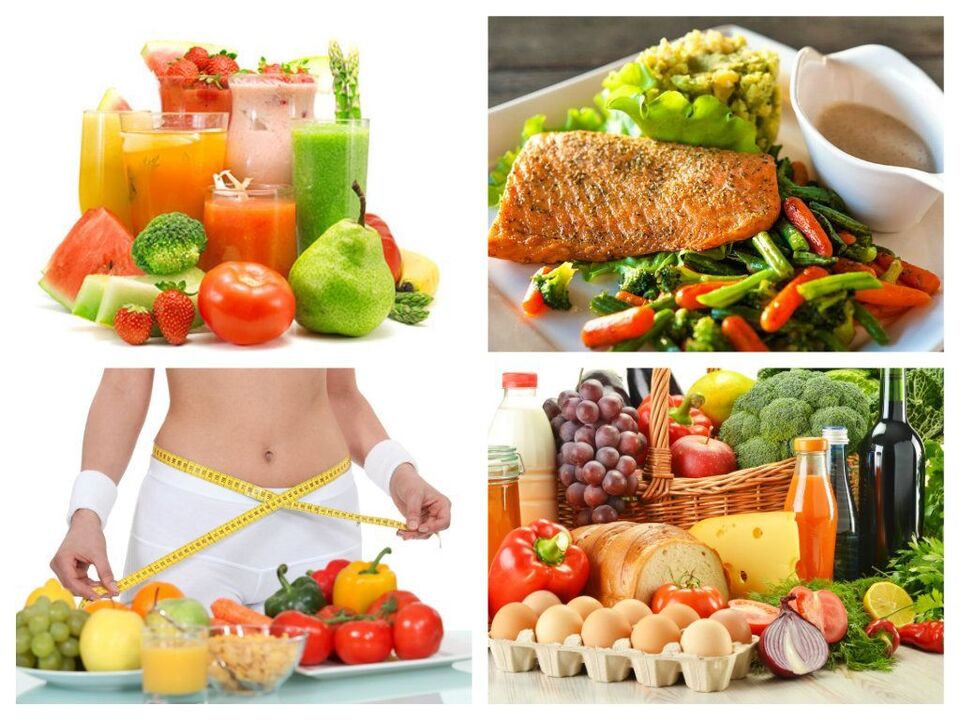
The menu discussed above is truly universal, as it can be organized to maintain body weight, to lose it, and even to build muscle. To use this diet for weight loss, it is enough:
- Reduce its calorie content to 1, 600-2, 200 calories.
- Break up meals up to 6-8 times a day.
- Prepare all dishes only by steaming, boiling or baking.
- Drink 2. 8-3. 5 liters of fluid daily (preferably green tea and water).
- Limit your sugar intake as much as possible.
- Consume any sweets, cookies and baked goods in very small quantities.
- Additionally, exercise (at least light exercise to speed up metabolism and speed up the process of losing weight).
Adhering to these principles, the optimal menu for maintaining weight can easily be converted into a diet for losing weight. As practice and people's reviews show, the effect of such a diet is quite significant.
Women's advice: diet for weight loss
How to get rid of excess weight - every woman has been puzzled by such a question at least once in her life. But not everyone was able to achieve the desired result. The struggle for an ideal figure always begins with finding an effective diet, which is correct in principle, because if you indulge in limitless gluttony, then even the best gymnastics in the world will not help you lose weight.
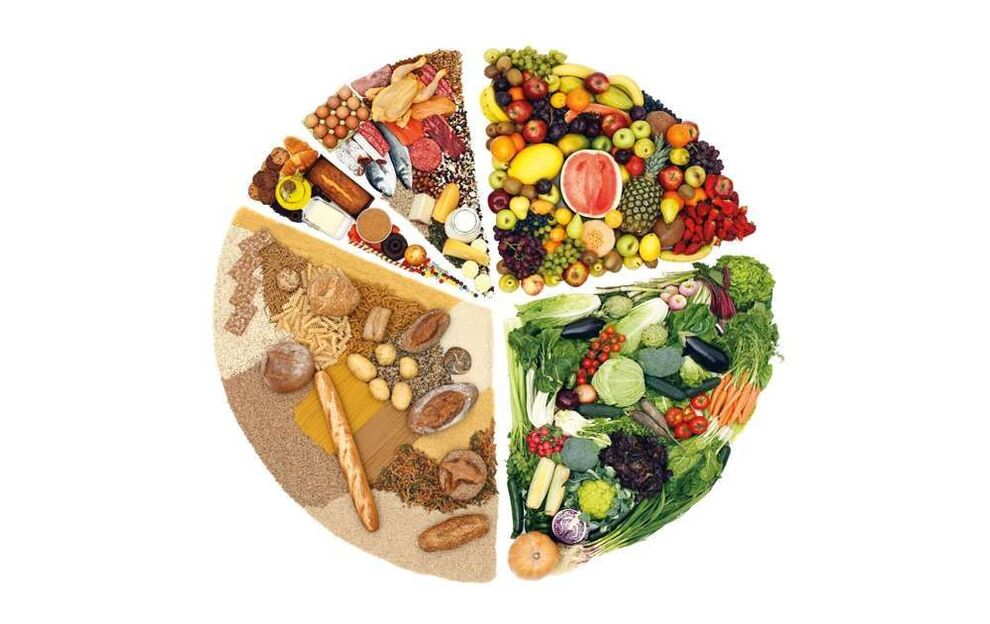
However, not all diets are truly effective, and even more than that, some recommendations that you can read on the Internet are downright unsafe. Especially to clarify this issue, the following will provide a recommended diet for weight loss for women and list useful tips on how to lose excess weight without harming your own health.
4 common mistakes
Before we move on directly to considering the diet for weight loss, we need to name the most serious mistakes that are made by women who decide to "declare war" on extra pounds:
- Just eat less. The general strategy is correct - the amount of food consumed really needs to be reduced. However, we must not forget about the need to monitor a balanced diet.
- Saving hunger. An even more serious mistake is a complete refusal of food - that is, fasting. You need to understand that fat cells completely deprived of nutrition are subject to metabolic stress and therefore, immediately after resuming food intake, they begin to make "reserves" at double speed - in case hunger suddenly recurs. Fasting is quite successfully used to treat some diseases, but obesity is not included in their list.
- Mono-diets. Diets of this type prescribe eating 200-300 grams of some low-calorie product 4-6 times a day - apples, cucumbers, low-fat kefir, etc. Unfortunately, such a diet is not suitable for sustainable weight loss for the same reasons thatwere stated in the two paragraphs above. Mono-diets are recommended as a one-day fasting day after some one-time "violations" - for example, a large feast on the New Year.
- Lack of water. The most critical mistake women make when trying to lose weight is not drinking enough plain water. The lack of free fluid makes it difficult to break down fat deposits, as a result of which it is impossible to lose weight even on the most strict diets. In addition, sometimes a constant feeling of hunger is caused precisely by dehydration of the body, but after regulating the drinking regime, the irrepressible desire to "chew something" quickly disappears.
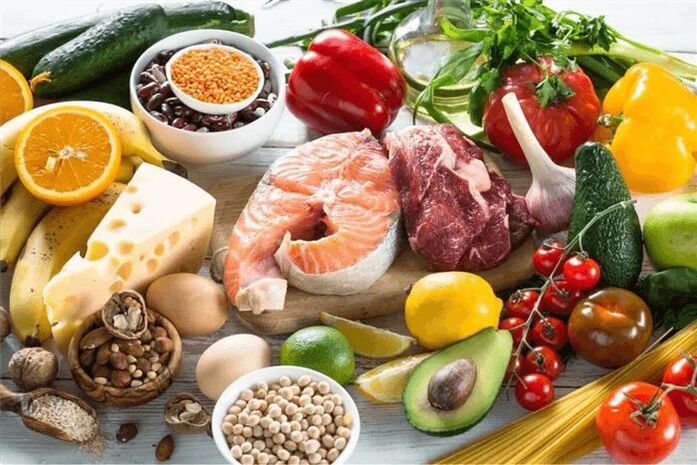
It should also be remembered that sometimes excess weight gain is caused by endocrinological disorders - especially during or after menopause. Diets alone cannot correct this problem. In such a situation, it is better to consult an endocrinologist.
And one more thing - as a conclusion
A properly formulated diet ensures confident and sustainable weight loss, but such weight loss will most likely occur unevenly if the diet is not supplemented with an individually selected set of physical exercises.
This is quite easy to do: you just need to purchase a club card for a good fitness center and contact a trainer-instructor for appropriate advice. A combination of diet and fitness will help you quickly bring your weight and figure to ideal condition - and isn’t this what every woman dreams of?












































